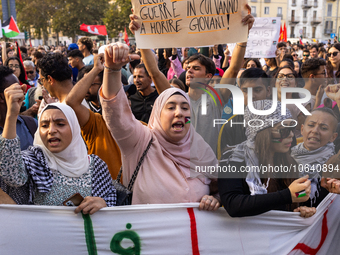On Tuesday, June 13, there will be a third round of protests in Brussels led by workers from the social sectors, expressing their discontent with the current working conditions. These conditions have led to staff shortages and increased workloads, but their concerns have been largely ignored by politicians.
Kabul24: The list of demands put forward by the protesters echoes those from previous actions earlier this year. It includes a collective reduction in working hours for all employees, better support for physical and mental well-being, increased flexibility, and improved pay and working conditions to make the sector more attractive to current and future employees.
Nathalie Lionnet, the federal secretary of BBTK, stated, “We cannot ignore the work pressure and staff shortages in hospitals and other public sectors. The vicious circle must be broken. This can only be done by enhancing wages and improving working conditions.” A trade union representative estimates that approximately 22,000 people will participate in the march, reiterating their grievances and urging for necessary changes
The first protest took place in January, when tens of thousands of demonstrators flooded the streets of Brussels to draw attention to the work situation in the public sector. Another protest followed in Flanders in May. Although the Flemish and Federal Health Minister acknowledged the challenges faced by the sector, no financial resources were allocated to address these issues.
GP Strikes and Hospital Protests Reflect Distressing Conditions
The healthcare sector is facing a dire situation, as evidenced by recent strikes by General Practitioners (GPs) in Wallonia and hospital workers in Brussels. Distressing conditions and a severe shortage of staff are prevalent in childcare services, youth welfare, and elderly care. The impending retirement of thousands of workers coupled with a low influx of young workers is expected to exacerbate the situation.
Demands for Workload Reduction and Additional Resources
To address the critical issues plaguing the public sector, urgent measures are required. The union has emphasized the importance of reducing workloads to enable the sector to carry out its vital work effectively. They stress the need for additional resources to meet these demands. To amplify their call for action, a large-scale demonstration is scheduled to take place in Brussels city center on Tuesday







